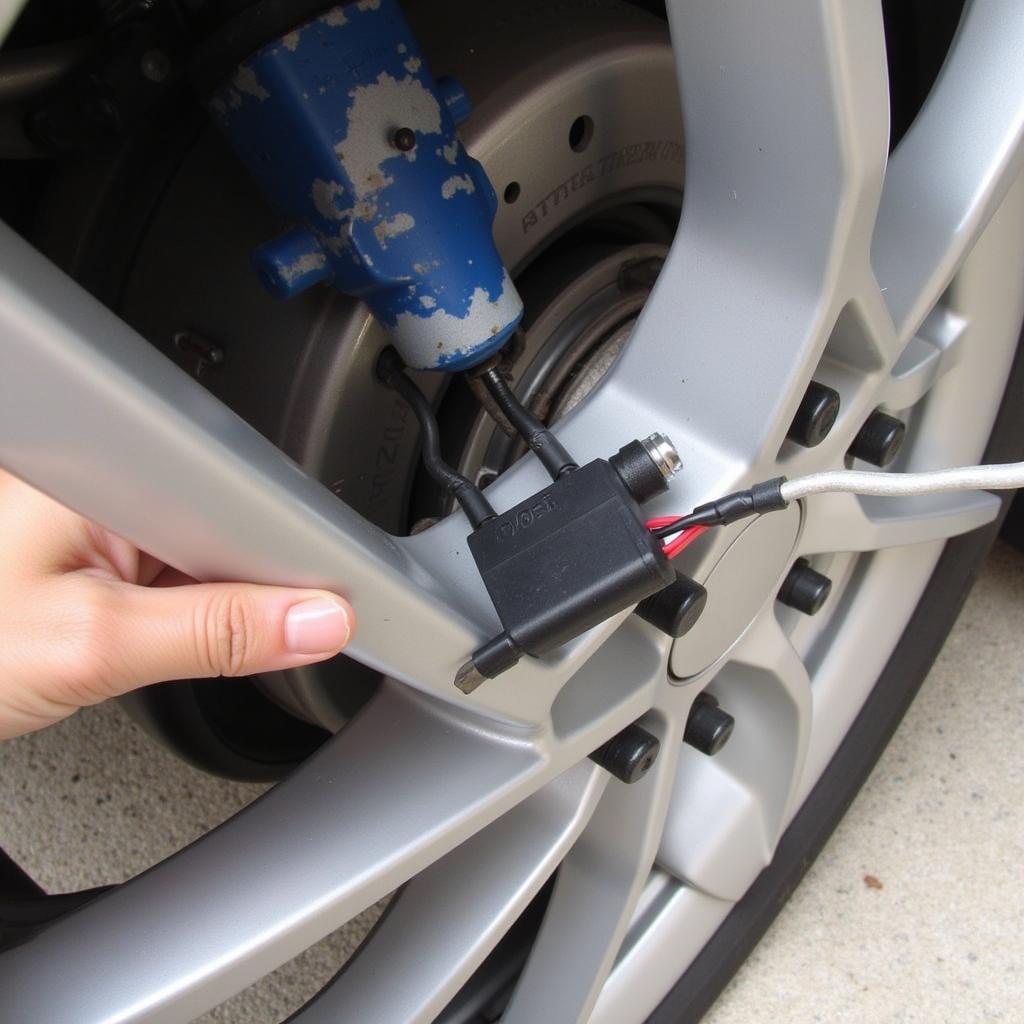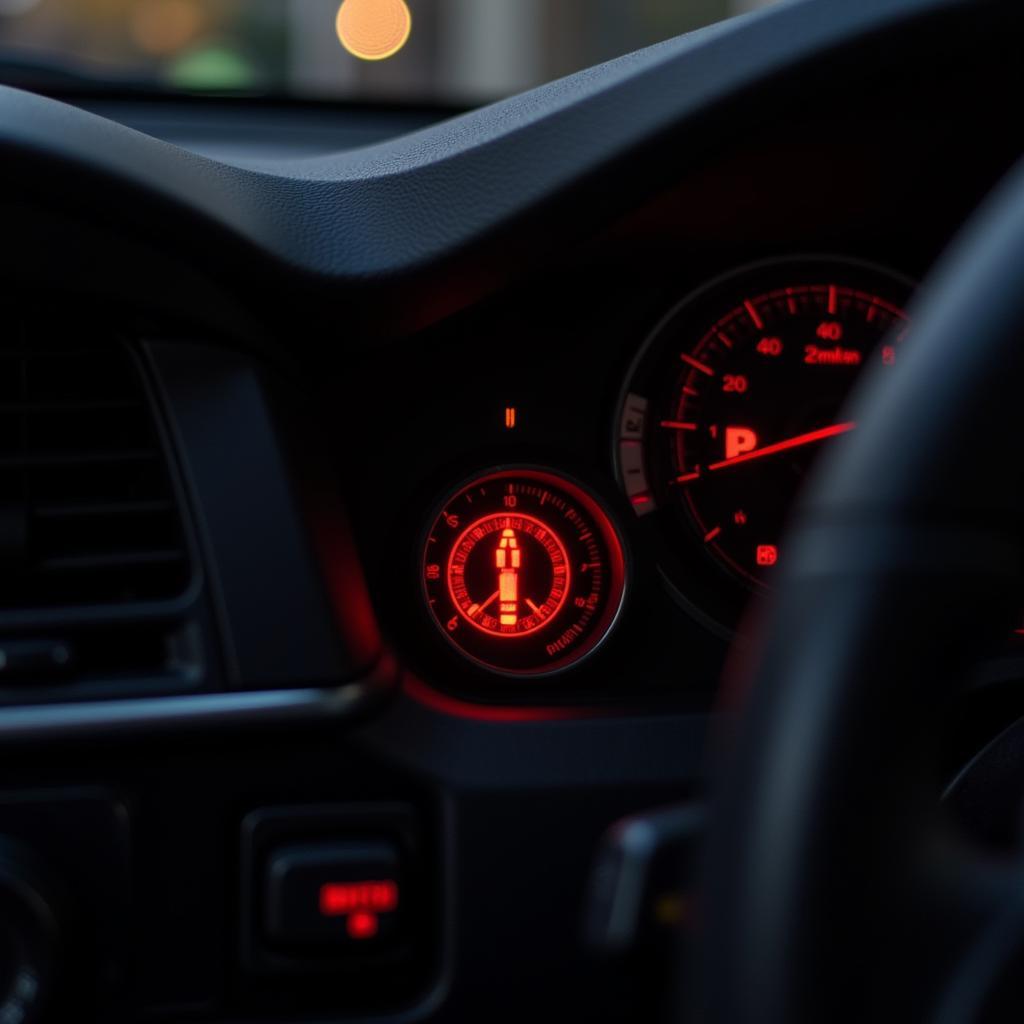If your car battery dies, will it recharge? This is a common question among car owners, and the answer isn’t always straightforward. A dead battery can be a frustrating experience, especially when you’re in a hurry. Understanding why your car battery died and if it can recharge is crucial. Let’s delve into the details.
Understanding Why Car Batteries Die
Several factors can contribute to a dead car battery. Leaving lights on, extreme temperatures, old age, and a faulty alternator are some of the common culprits. Identifying the root cause is essential to determine if the battery can be revived. For example, a car battery dead in winter is a common scenario due to the cold temperatures affecting the battery’s chemical reactions.
Common Causes of a Dead Battery
- Lights Left On: One of the most common reasons is accidentally leaving the headlights, interior lights, or even the radio on after turning off the engine. This drains the battery over time.
- Extreme Temperatures: Both extreme heat and cold can impact a battery’s performance. Heat can evaporate the battery fluid, while cold can slow down the chemical reactions required to generate power.
- Old Age: Like any other component, car batteries have a limited lifespan. Typically, they last between three to five years, depending on usage and environmental conditions.
- Faulty Alternator: The alternator is responsible for recharging the battery while the engine is running. If the alternator malfunctions, the battery won’t receive the necessary charge and will eventually die.
Can a Dead Car Battery Recharge Itself?
Generally, a completely dead car battery won’t recharge itself. It needs an external power source, like a battery charger or jumper cables, to come back to life. However, a slightly discharged battery might recover some charge once the engine is running, thanks to the alternator. If my car battery dies will it recharge? This depends on the extent of the discharge and the condition of the alternator.
Jump Starting a Dead Battery
Jump-starting is a common solution for a dead battery. It involves connecting your dead battery to a charged battery using jumper cables. It’s important to follow the correct procedure to avoid any damage to both vehicles.
Using a Battery Charger
A battery charger is another effective way to recharge a dead car battery. It provides a steady flow of electricity to replenish the battery’s charge. How long it takes to charge depends on the battery’s size and the charger’s amperage. If your car battery wont keep charge, it’s crucial to have it diagnosed to identify the underlying issue. It might be a sign of a bad battery or a problem with the charging system.
“A common misconception is that jump-starting is a permanent fix,” says John Smith, Lead Automotive Technician at Smith Auto Repairs. “While it gets you back on the road, it’s essential to diagnose the root cause of the dead battery to prevent future occurrences.”
When to Replace Your Car Battery
There are several signs that indicate it’s time for a new car battery. These include slow engine cranking, dimming headlights, and clicking sounds when you turn the key. A dead battery in a car can be a sign of a failing battery or another electrical issue. If you experience a car dead no power situation, it’s best to consult a qualified technician.
Signs of a Failing Battery
- Slow Engine Cranking: If your engine takes longer than usual to start, it could be a sign of a weak battery.
- Dim Headlights: Dimming headlights, especially when idling, can indicate a failing battery.
- Clicking Sounds: Rapid clicking sounds when turning the key suggest the battery doesn’t have enough power to start the engine.
- Dashboard Warning Lights: The battery or check engine light illuminating on your dashboard could signal a battery problem.
“Regular battery testing is crucial for preventative maintenance,” adds Jane Doe, Electrical Systems Specialist at Doe Auto Diagnostics. “It can save you from the inconvenience of a dead battery and potential damage to other electrical components.”
Conclusion
If your car battery dies, it likely won’t recharge itself. You’ll need an external power source like jumper cables or a battery charger. Identifying the underlying cause of the dead battery is crucial to prevent future occurrences. Regular maintenance and testing can help prolong your battery’s lifespan and avoid unexpected breakdowns. Remember, a dead battery can often be a sign of a larger issue, so don’t hesitate to consult a qualified technician if the problem persists.


